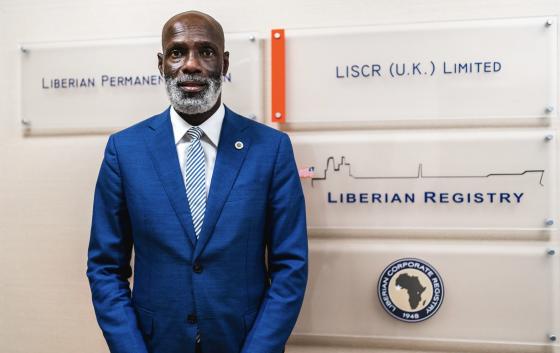Liberia Ready for IMO Audit Scheme

Maritime Commissioner Lenn Eugene Nagbe.
…Hold stakeholders engagement
As Liberia gears up for the 2023 International Maritime Organization (IMO) audit, stakeholders in the country’s maritime sector over the weekend concluded a one day strategic meeting in Monrovia.
The IMO Audit Scheme is intended to provide IMO member states with a comprehensive and objective assessment of how effectively they administer and implement IMO mandatory instruments identified in image resolution A.973(24).
It is intended that the audit results be systematically fed back into the regulatory process at IMO to help make measurable improvements in the effectiveness of the international regulatory framework for shipping.
When such an audit is completed, it will place Liberia in a much better position globally for effective use of its ports.
Given the importance of the meeting, Liberia Maritime Authority Commissioner Lenn Eugene Nagbe said, Liberia is a signatory to several international maritime instruments, and that the IMO team will be in the country shortly to assess the maritime sector.
Commissioner Nagbe said the engagement was intended to brainstorm on a harmonized approach to the audit; noting that the nation holds a significant role in world maritime as one of the major flag, coastal, and port states.
“My administration is working with our agent — Liberian International Ship and Corporate Registry, and have decided to perform an IMO audit so that Liberian ports can get the proper certification and accreditation,” he said.
He indicated that last year, Liberia participated in the audit voluntarily and came out with flying colors, but this year’s audit is more detailed with all aspects of the activities in the sector considered.
The audit, according to him, will expose Liberia’s level of commitment to compliance and implementation of international maritime protocols.
“At this meeting, we have Dr. Lawrence Barchue, a former Secretary General of the IMO who is a Liberian, who has been asked by ourselves to develop the national maritime strategy,” the Liberia Maritime boss said.
The commissioner said, Since 1948, when Liberia launched its maritime pogrom, it has been growing from strength to strength. “We have unique partnerships with several countries. And it is because of those partnerships, today, Liberia has the best shipping registry and we are also the second largest ship registry in the world.”
“The reputational advantage is that when you are compliant, it brings benefits... I just mentioned to you that we are a major flag state, the second largest registry in the world,” Nagbe continued. “If the audit finds that you are not compliant with the maritime instrument, it affects your status as a major flag state. And a lot of your constituent clients will end up leaving because nobody will want to be with a country that is not in compliance with its international obligations.”
Furthermore, Commissioner Nagbe said the audit will expose the gaps in the maritime sector so that they can be mitigated in order to improve service at ports as well as environmental compliance to meet our responsibilities as a coastal state.
The IMO Member State Audit Scheme (IMSAS) aims to promote the consistent and effective implementation of applicable IMO instruments and to assist Member States in improving their capabilities, whilst contributing to the enhancement of global and individual Member States' overall performance in compliance with the requirements of the instruments.
The audit scheme, using the IMO Instruments Implementation Code (III Code) as the audit standard, aims to provide an audited member state with a comprehensive and objective assessment of how effectively it administers and implements those mandatory IMO instruments that are covered by the scheme.
The meeting, held on February 24, at the Liberia Maritime Authority (LiMA) headquarters in Congo Town, brought together institutions including LiMA, the National Fisheries and Aquaculture Authority (NaFAA), the Liberia Defense Coastguard, the National Port Authority, the Environmental Protection Agency (EPA), the Law Reform Commission, and the Ministry of Foreign Affairs, amongst several others in the sector.
